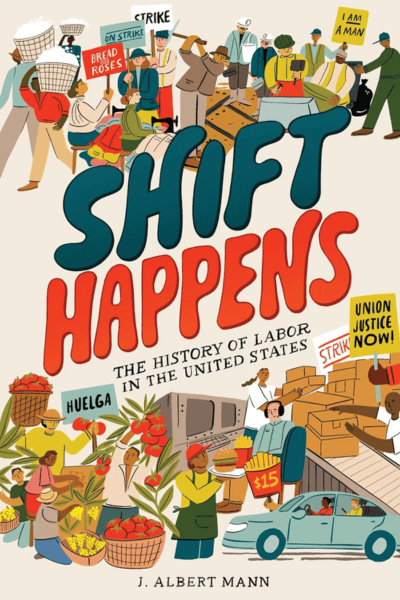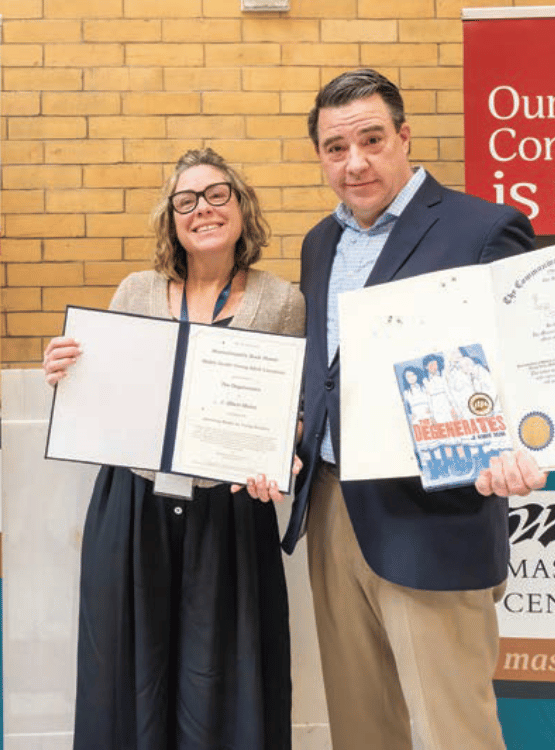J. Albert Mann is a disability activist and award-winning author of books for young people. Her work focuses on history, social justice, equity, disability, eugenics, gender, economics, and labor. So…all the fun stuff.
Her first work of historical fiction—SCAR: A REVOLUTIONARY WAR NOVEL—highlights the large role Indigenous Nations played in the war, a conflict which they understood held tremendous stakes for them. Taking a hundred-year leap, Mann next wrote the biographical fiction WHAT EVERY GIRL SHOULD KNOW recounting the traumatic early life of Margaret Sanger (an iconic champion of women’s health) leading to Sanger’s fight to de-criminalize contraception. Sanger’s world, steeped in eugenics, prompted THE DEGENERATES, a novel depicting the lives of four young women swept up in the mass incarceration of disabled Americans during the early eugenics movement of the 1920s. Mann followed with FIX, a contemporary fictionalized account of the author’s life centering ableism and opioid addiction, and revealing how much farther our country still has to go to achieve full inclusion, access, and opportunity. Mann’s first nonfiction (June, 2024), SHIFT HAPPENS: THE HISTORY OF LABOR IN THE US brings together the themes found in her fiction to recount the story of America’s working class—the most violent labor history of any industrialized country in the world.
Her work has won the Massachusetts Book Award Honor, the Orbil Prize, the Premio Andersen Award, and been long-listed for the South Carolina Book Award. It has received a Disability Visibility Grant, been named a JLG Gold Standard Selection, a Bank Street Best Book, a BCCB Blue Ribbon Book, a Kirkus Best Book, and made the Best of YA reading lists of Buzz Feed, the TAYSHAS, and YART, while being selected for IBBY’s Outstanding Books for Young People with Disabilities.
Mann has her MFA in Writing from Vermont College of Fine Arts, is the Partner Liaison for the WNDB Internship Grant Committee, and sits on the board of the Rutgers University Council on Children’s Literature. She lives in Queens, New York.



